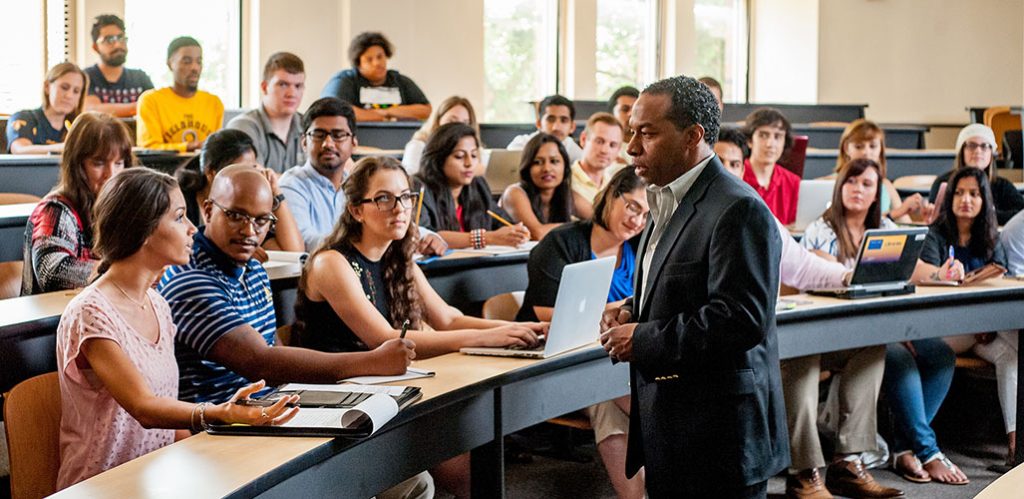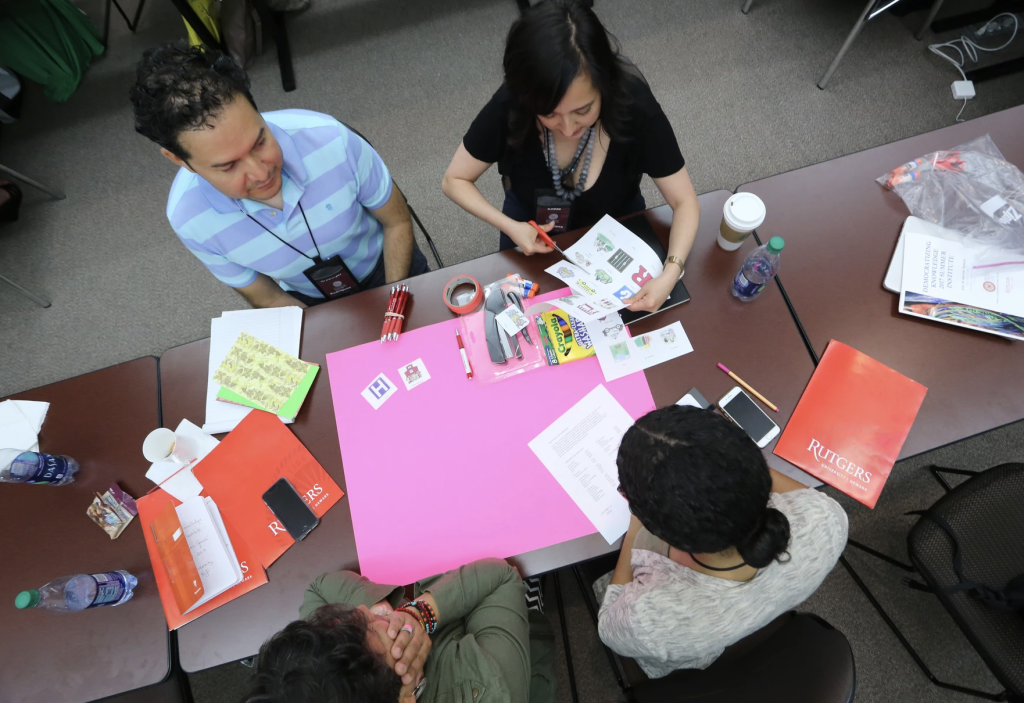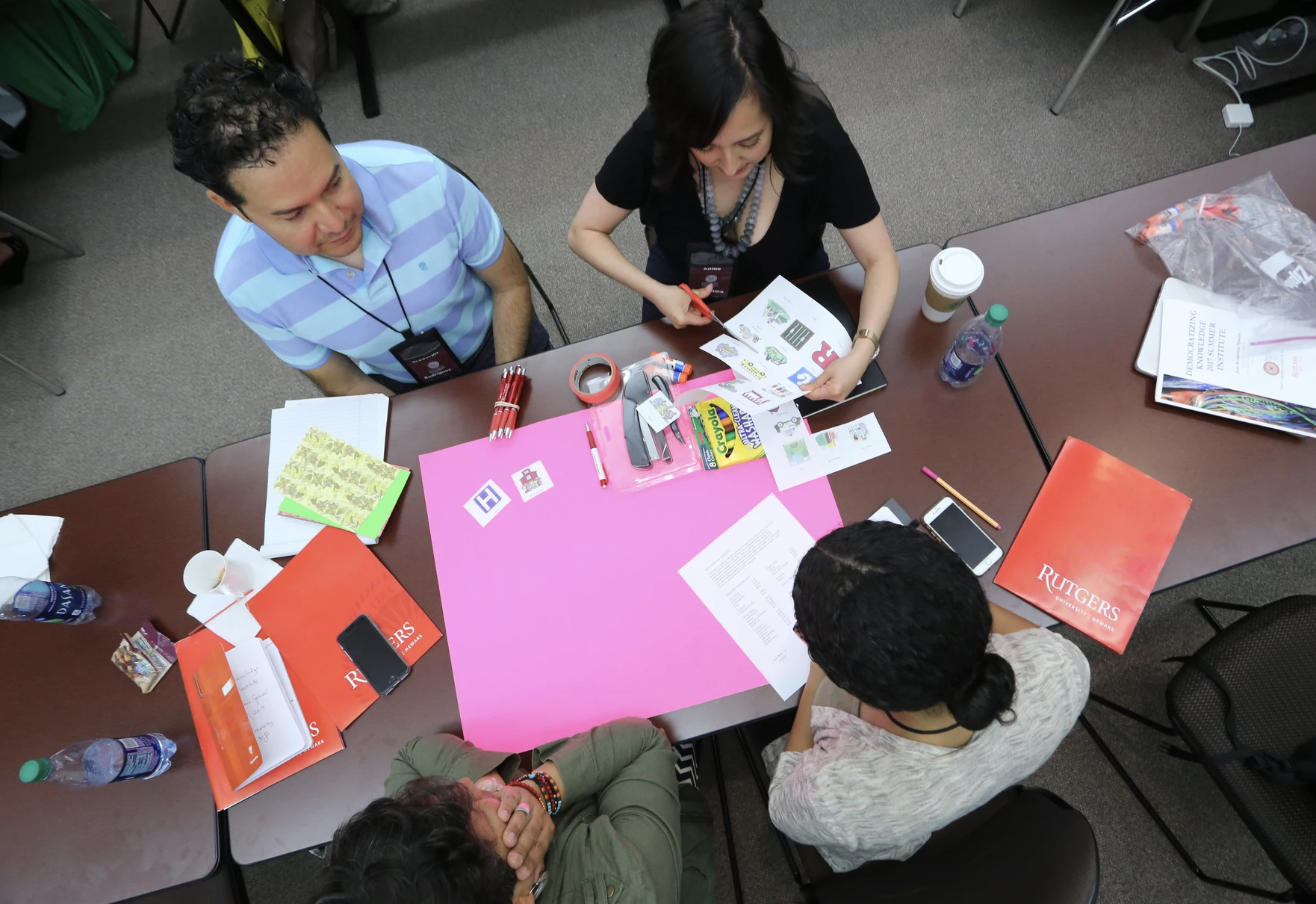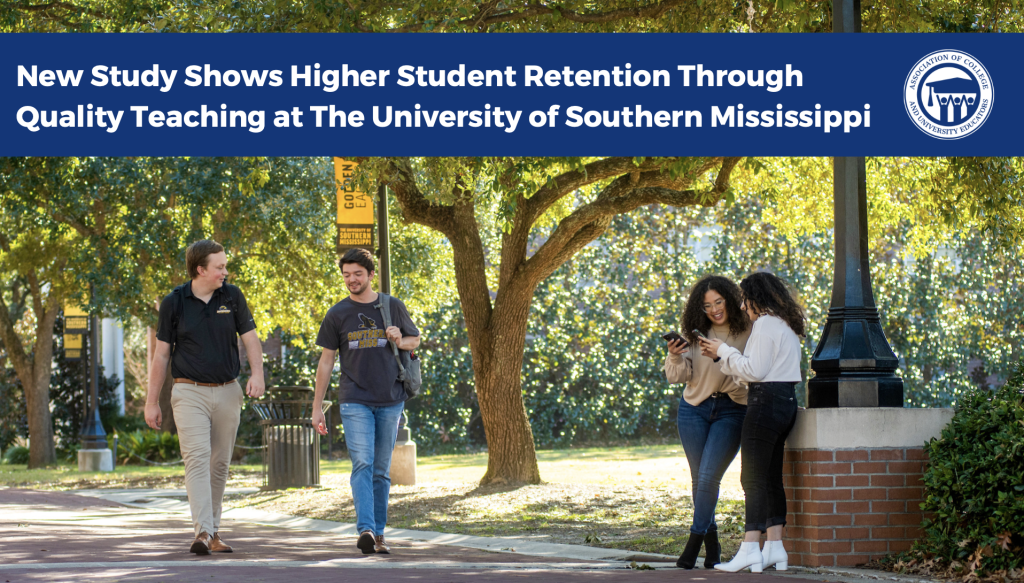
Why Texas A&M University System is Taking Inclusive Teaching to Scale
 “Effective teaching is inclusive teaching,” said Penny MacCormack, ACUE’s Chief Academic Officer, in her opening remarks at Texas A&M University System’s (TAMUS) DEI Summit in early April. ACUE’s microcredential, Inclusive Teaching for Equitable Learning, was a central topic of discussion at the summit.
“Effective teaching is inclusive teaching,” said Penny MacCormack, ACUE’s Chief Academic Officer, in her opening remarks at Texas A&M University System’s (TAMUS) DEI Summit in early April. ACUE’s microcredential, Inclusive Teaching for Equitable Learning, was a central topic of discussion at the summit.
The session underscored TAMUS’ deepening investment in quality teaching systemwide through its Scaling Instructional Excellence for Student Success initiative, launched in 2020 alongside the National Association of System Heads (NASH). After a successful first year of partnership, TAMUS leaders announced a three-year continuation of its partnership with ACUE.
MacCormack and Carmen Macharaschwili, ACUE Academic Strategist, were joined by LaShondra Manning, Assistant Professor of Counseling at Tarleton State University, and Alvin Johnson, Director of Academic Advising at Prairie View A&M University who participated in a panel discussion.
Manning and Johnson earned their ITEL microcredentials last semester, learning new practices for creating a more inclusive classroom. Meanwhile, Cindy Blackwell, ACUE Academic Director, shared insights from her experience overseeing the partnership.
Confronting our own biases
Manning and Johnson shared how through the ACUE program, they discovered new facets of themselves and their own teaching — not just insights about their students.
Manning, who said she had previously made assumptions about students’ knowledge, learned that she had to develop new ways to account for her own biases. She went on to explain that she had unconsciously expected students to be perfectionists like her, never realizing that her traditional educational background didn’t coincide. Through ACUE, she grew to understand how important it was to get to know students.
“ACUE shifted my perspective,” she said. “When I lifted my bias, that helped me connect better with my students. I needed to stop making assumptions.”
Johnson came to the ACUE program with a unique perspective. He and his team’s roles are to ensure they support teaching philosophies and strategies.
“We forget that our students come with so many gifts and tools,” he said. “I constantly remind students that they have power and agency.”
Coping with imposter phenomenon
Both Manning and Johnson underscored how prevalent imposter phenomenon, a feeling of not belonging in an academic setting, is in the classroom and beyond.
“Imposter syndrome sets in quickly,” Johnson said. “We have to change the conversations and vocabulary because students start mimicking that.”
Manning agreed, adding that she has worked hard to build an environment that welcomes all student’s perspectives.
Blackwell noted that faculty and staff can encounter imposter phenomenon anywhere on campus. “No matter where you are, a campus is a learning environment,” she explained. She shared how she recently read a reflection from the admissions staff, who had a first-generation student struggling to fill out the FAFSA.
“She didn’t feel like she belonged,” Blackwell said. “How many students feel that way?” This, she explained, is one of the reasons why all sectors of academic life should be equipped with inclusive teaching practices, from the residence halls to advising.
Microaggressions and inclusive teaching
Microaggressions were another important topic of conversation, one the Inclusive Teaching microcredential focuses on deeply.
“ACUE gave us permission to confront microaggressions,” said Manning, who noted that she had experienced them herself. The program, however, equipped her with the skills to talk to students about their experiences and use them as teachable moments. Now, she has taken strides to encourage other faculty to confront microaggressions, such as by preparing a statement for the faculty retreat and inviting students to talk about their experiences.
“There are people who use microaggressions and don’t know they’re wounding people,” Johnson said. “A lot of time students come to us because they don’t know how to address it with faculty. The problem comes with the power differential.”
Through ACUE, Johnson also realized that he was not immune to perpetuating these slights. “My blackness and queerness do not eliminate me from privilege,” he said.
Blackwell added that she has heard faculty say they had never heard the term “microaggression” but have experienced and seen them. “So many students don’t even know what they’re saying,” she said. “We’ve got to teach them [about microaggressions] in this environment so they don’t go out and perpetuate it in other environments.”
“These are difficult topics and conversations,” Johnson added. “My biggest takeaway is that for years I’ve avoided training that has to do with DEI [as a Black and gay man]. But I was also unintentionally replicating the harm that was done to me. I realized these are opportunities to learn, and ACUE has made this training approachable.”
To learn more about ACUE’s Inclusive Teaching for Equitable Learning microcredential and other programs, visit https://acue.org/programs/catalog/.


 For Ryan McPherson, an associate professor of practice at the University of Texas at San Antonio, the ACUE course taught him a lot about what works in terms of teaching and learning. But it was learning about what
For Ryan McPherson, an associate professor of practice at the University of Texas at San Antonio, the ACUE course taught him a lot about what works in terms of teaching and learning. But it was learning about what 




 Five years ago, The University of Southern Mississippi (USM) faced big challenges. In gateway courses, first-year students struggled to pass, and large gaps existed by race and Pell status. On top of that, USM academic leaders say, there lacked an instructional culture rooted in evidence-based teaching and student success.
Five years ago, The University of Southern Mississippi (USM) faced big challenges. In gateway courses, first-year students struggled to pass, and large gaps existed by race and Pell status. On top of that, USM academic leaders say, there lacked an instructional culture rooted in evidence-based teaching and student success. 